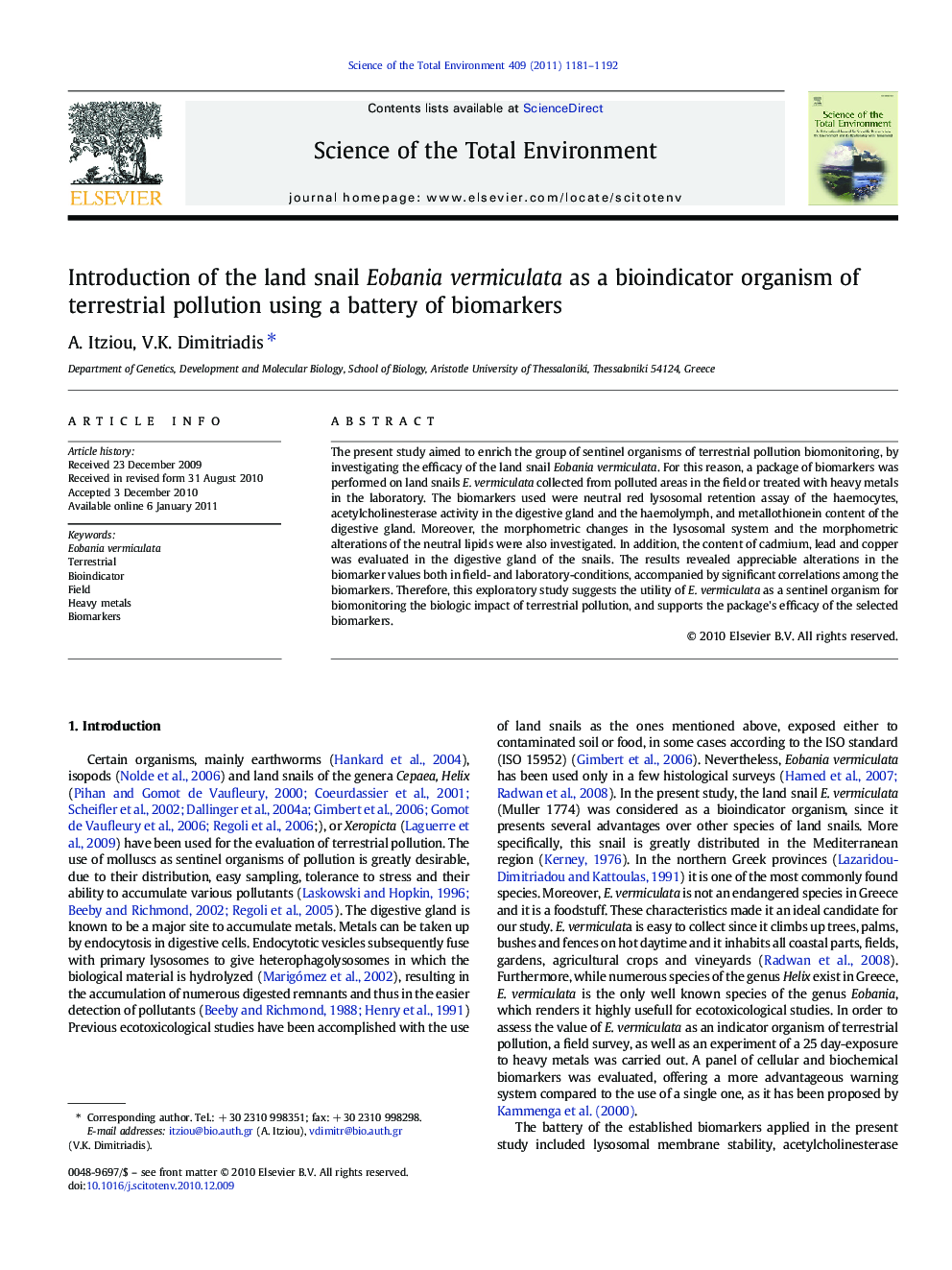| Article ID | Journal | Published Year | Pages | File Type |
|---|---|---|---|---|
| 4430338 | Science of The Total Environment | 2011 | 12 Pages |
The present study aimed to enrich the group of sentinel organisms of terrestrial pollution biomonitoring, by investigating the efficacy of the land snail Eobania vermiculata. For this reason, a package of biomarkers was performed on land snails E. vermiculata collected from polluted areas in the field or treated with heavy metals in the laboratory. The biomarkers used were neutral red lysosomal retention assay of the haemocytes, acetylcholinesterase activity in the digestive gland and the haemolymph, and metallothionein content of the digestive gland. Moreover, the morphometric changes in the lysosomal system and the morphometric alterations of the neutral lipids were also investigated. In addition, the content of cadmium, lead and copper was evaluated in the digestive gland of the snails. The results revealed appreciable alterations in the biomarker values both in field- and laboratory-conditions, accompanied by significant correlations among the biomarkers. Therefore, this exploratory study suggests the utility of E. vermiculata as a sentinel organism for biomonitoring the biologic impact of terrestrial pollution, and supports the package's efficacy of the selected biomarkers.
Research Highlights► Significant changes were noted in the values of the applied biomarkers. ► A package of biomarkers is supported to be an efficient tool for biomoniroting studies. ► The land snail Eobania vermiculata is proposed to be a good bioindicator organism in terrestrial pollution studies.
